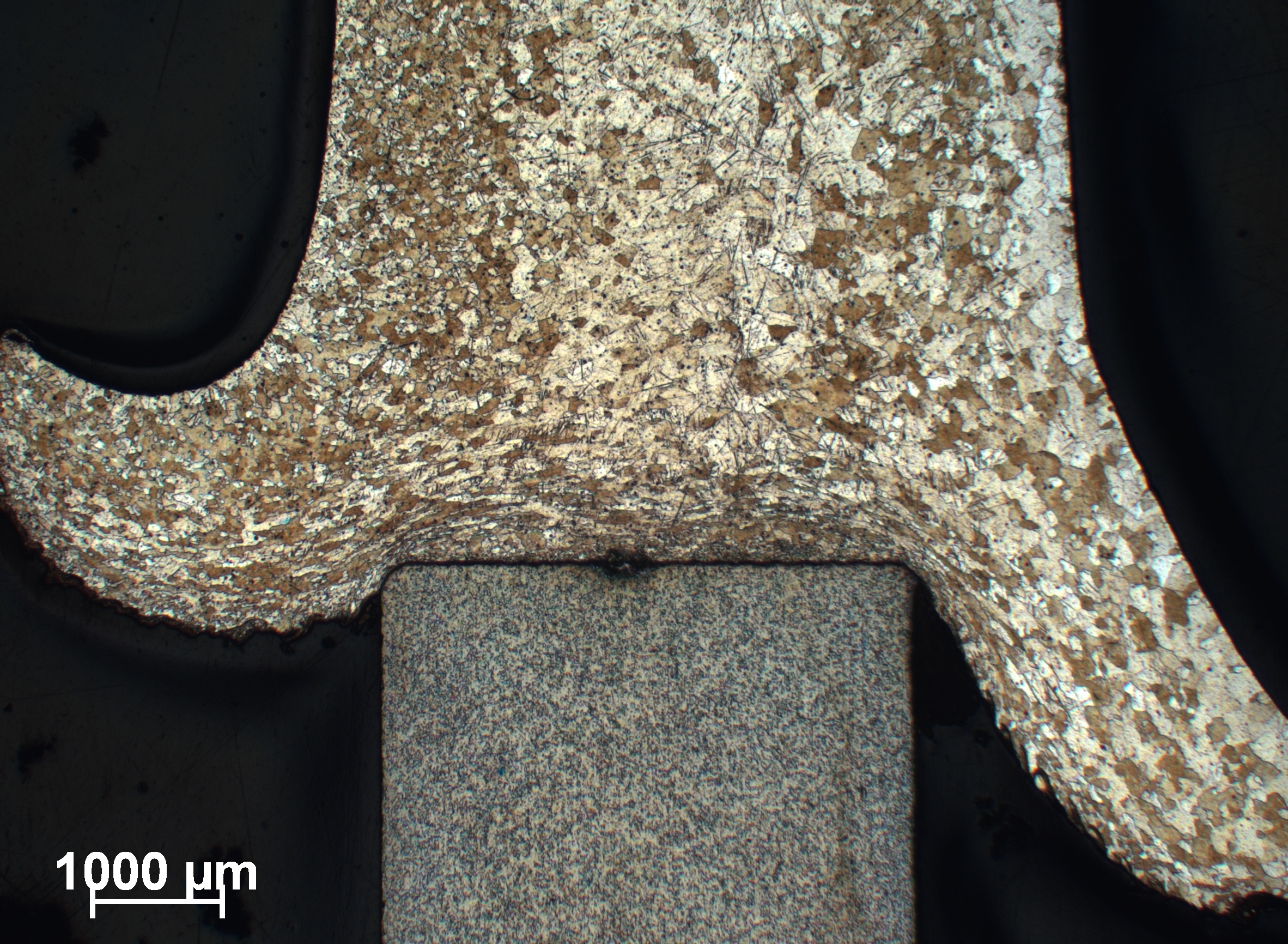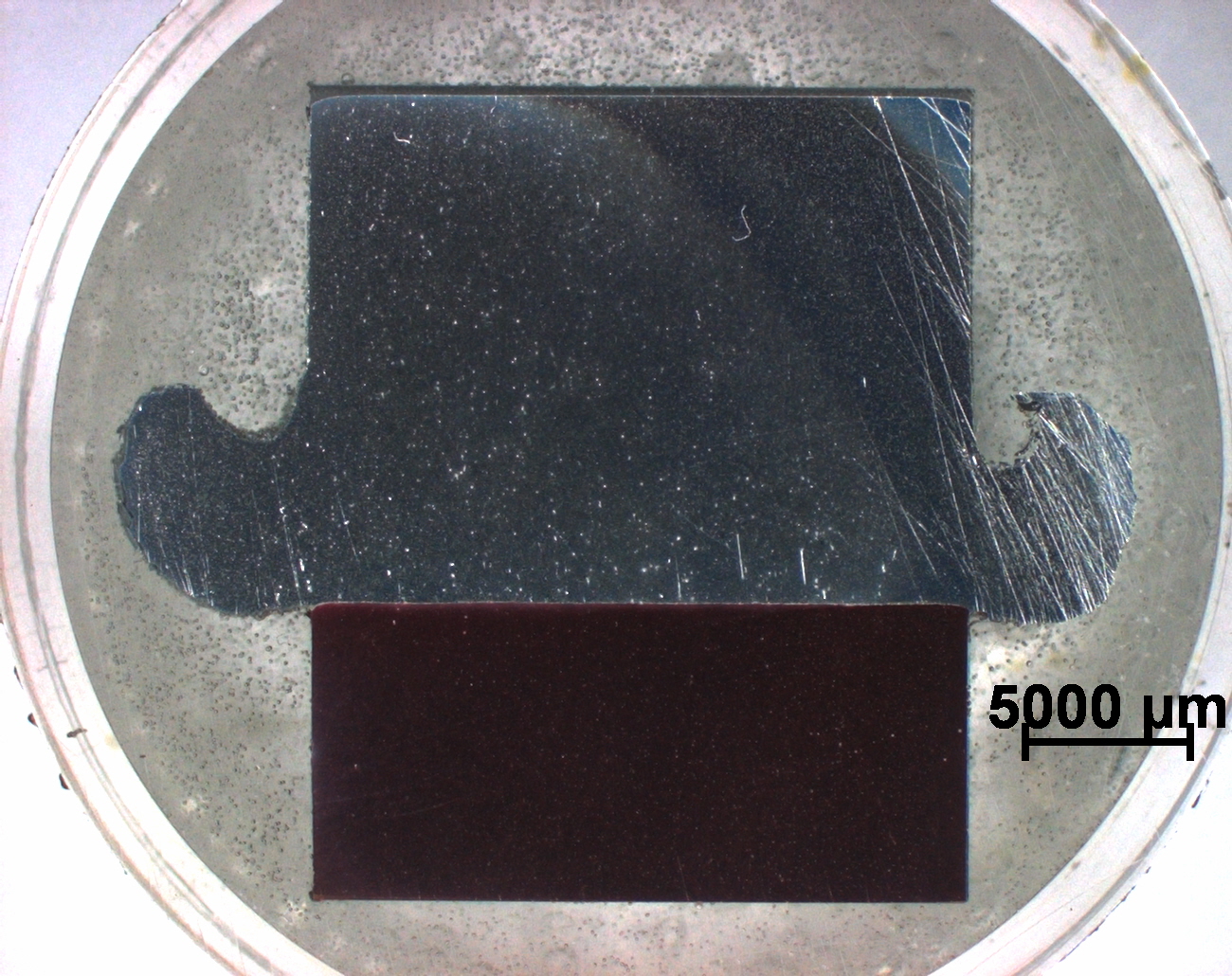Friction welding
Rotary friction welding
Friction welding (FRW) is a solid-state welding process that generates heat through mechanical friction between workpieces in relative motion to one another, with the addition of an axial force to plastically deform and join the materials.
Advantages of friction welding
- High quality welds, with a favourable metallurgical microstructure, since the materials don’t melt during welding.
- No special preparation of the workpieces.
- Little distortion after welding, due to the short welding time and the low maximum temperature.
- Possibility to connect workpieces with strongly different sections, provided that certain precautions are taken.
- The welding process is much faster than the conventional welding processes.
- Economic: friction welding allows savings on the cost of welded parts (saving time, material saving).
- Dissimilar materials can be welded, which are not possible with other processes, such as aluminum or copper to steel
- Very good reproducibility and possibilities for automation.
- Environmentally friendly: no protective gases, welding fumes or radiation.
- Less noise
- No need for certified welders.
Applications
Discover the applications of friction welding
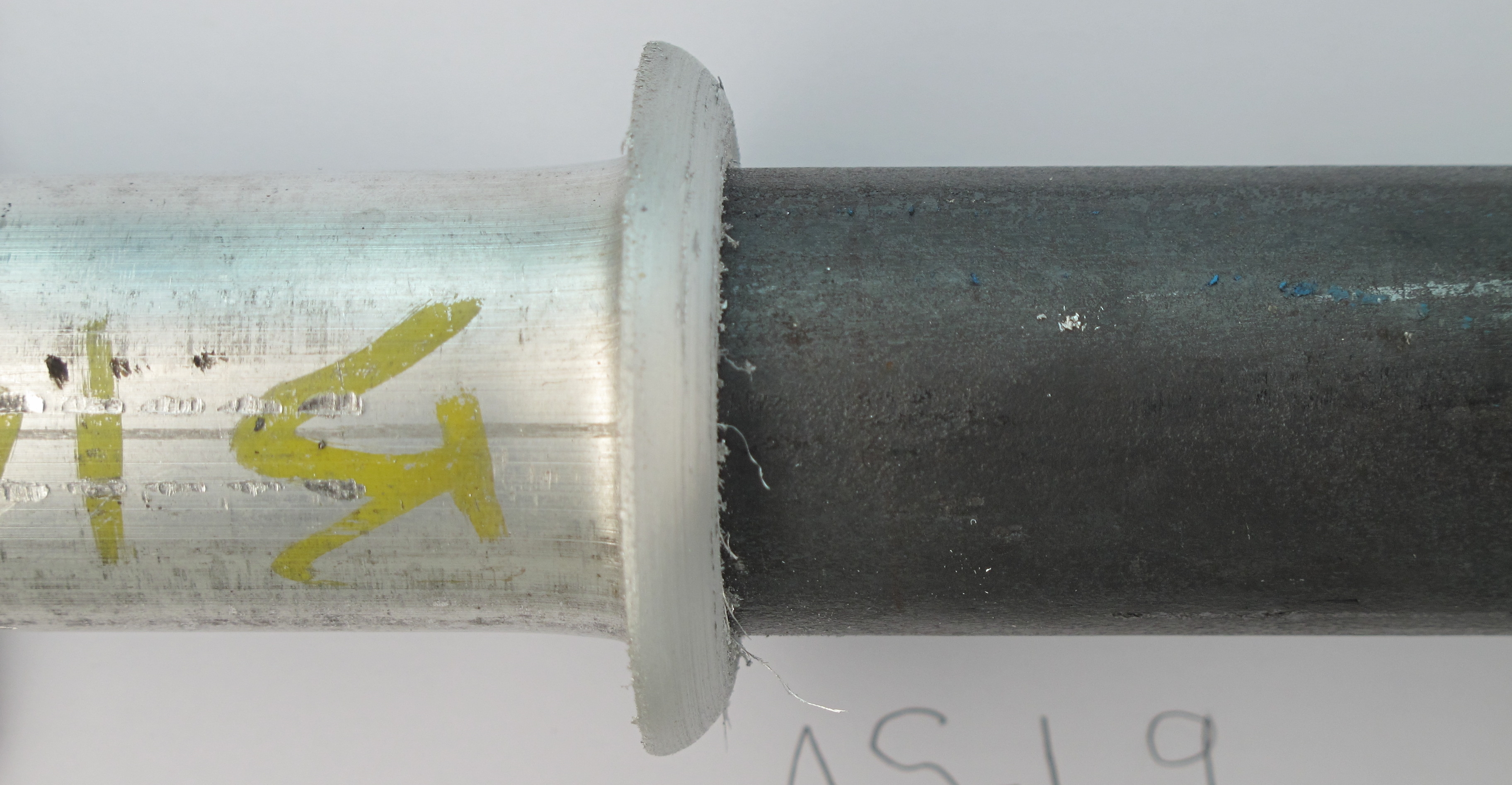
Figure 1: Weld of aluminium to steel
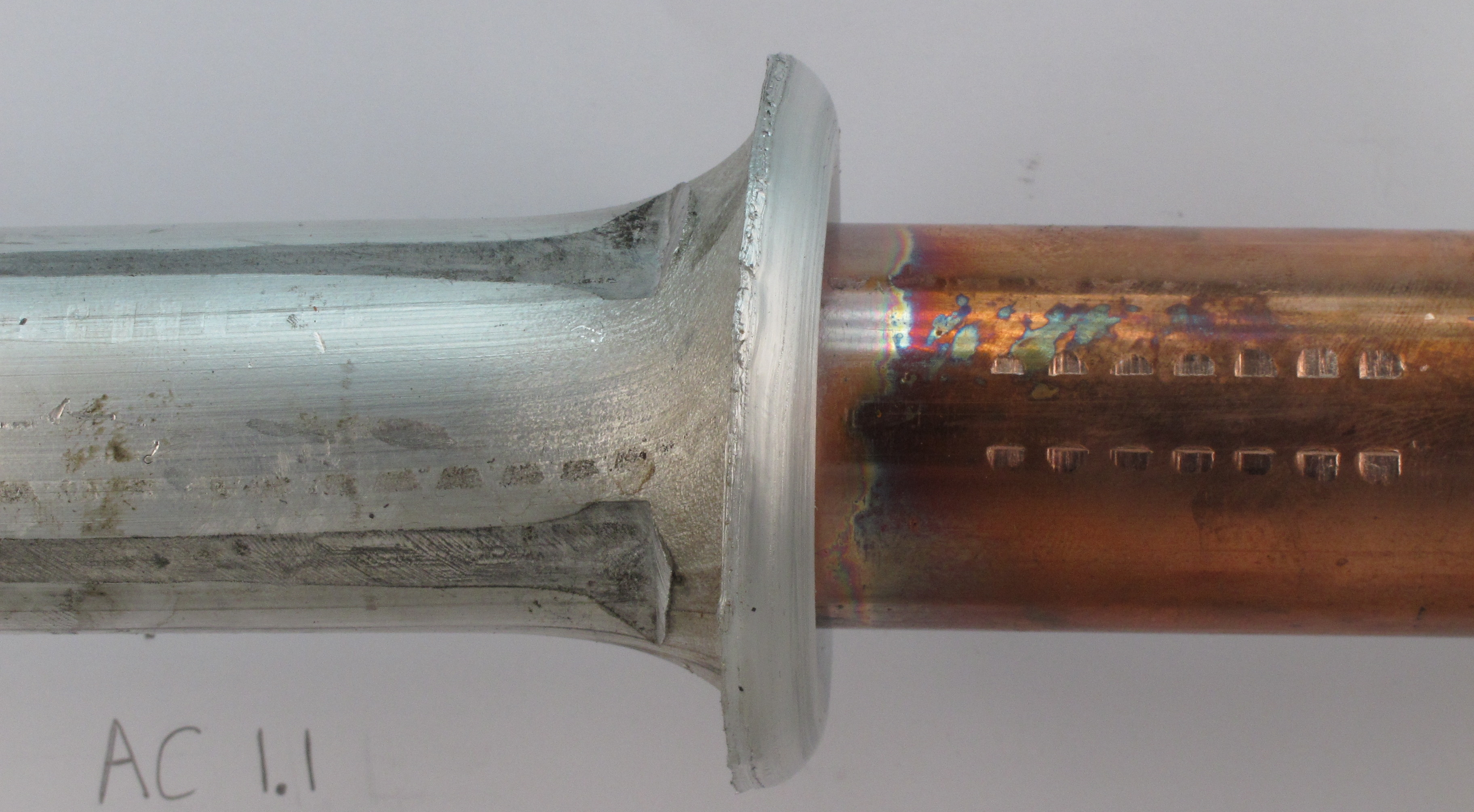
Figure 2: Weld of copper to aluminium
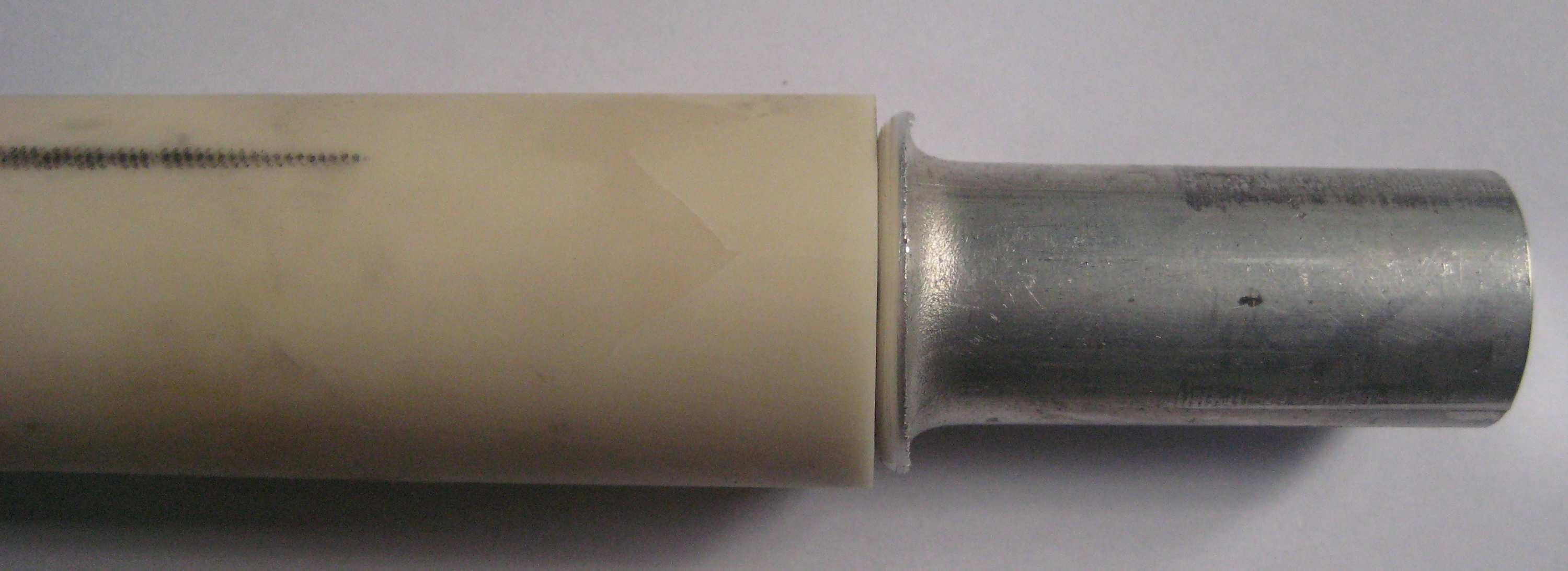
Figure 3: Weld of aluminium to ceramics (Al2O3)
Figure 4: Detail of a weld of aluminium to steel
Figure 5: Detail of a weld of aluminium to copper
Research and development
With our extensive friction welding expertise, we can provide advice and support for he development of prototypes, including analysis, geometry recommendations, material selection and cost saving options, metallurgical assessment, and mechanical testing.
We can perform a complete weld characterisation : optical and electron microscopy, metallurgical examination, mechanical and fatigue testing, and failure analysis.
More information
Please contact Koen Faes for questions about possible applications.

